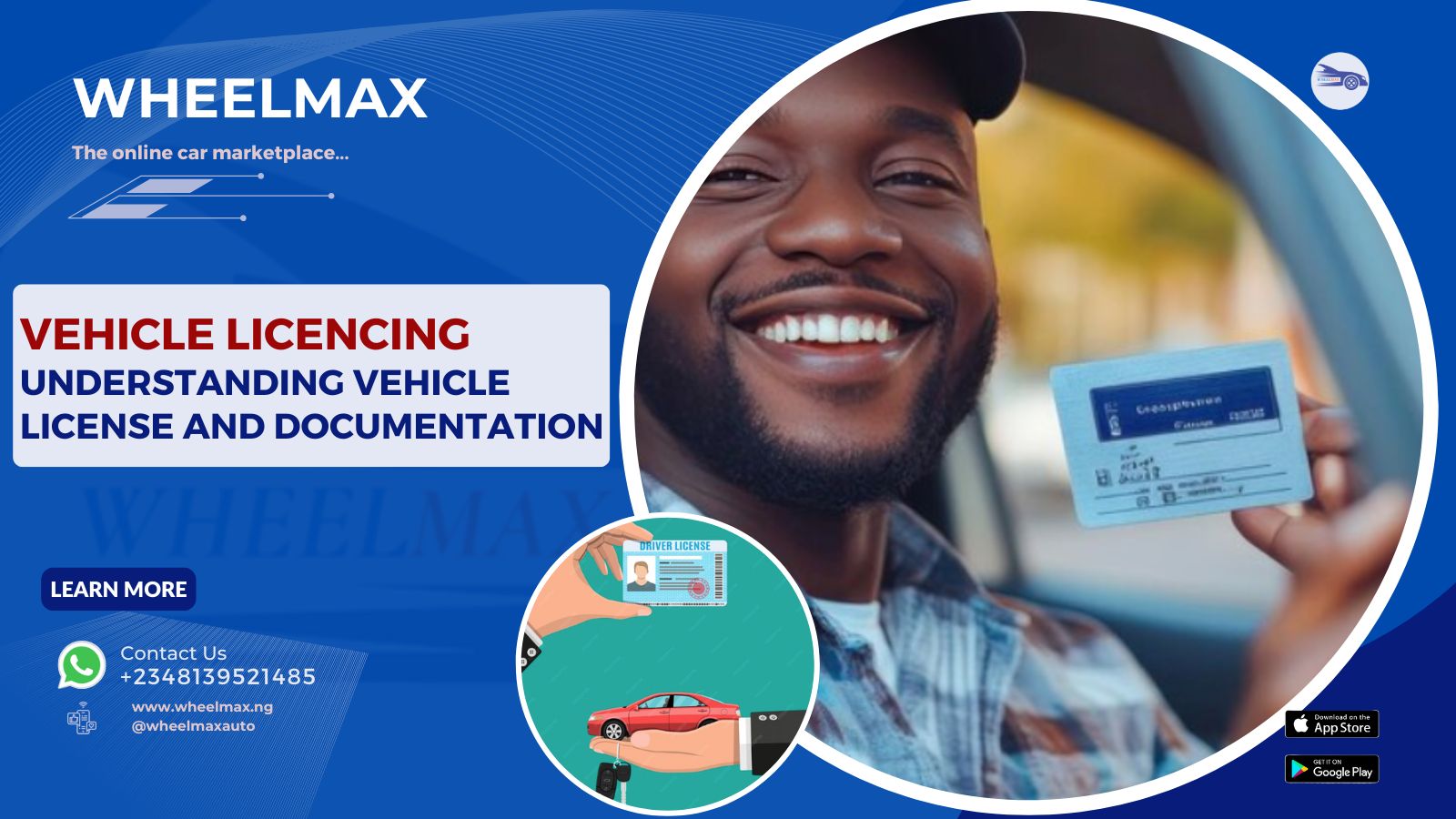Understanding Vehicle Licensing and Documentation in Nigeria
Navigating the world of vehicle ownership in Nigeria can feel complex. Beyond the excitement of finding the perfect car, there's a crucial layer of paperwork and procedure that every buyer and seller must master. Understanding these documents isn't just about fulfilling a legal requirement; it's the foundation of a secure and trustworthy transaction.
At WheelMax, we believe that an informed customer is an empowered customer. When both buyers and sellers are clear on the necessary documentation and procedures, the risk of fraud plummets and the entire market becomes safer for everyone. This guide will demystify the essential vehicle documents, outline the correct procedures, and explain the government regulations that ensure your peace of mind.
The Essential Documents: Your Proof of Legitimacy
Think of a vehicle's documents as its passport and identity card. Each paper tells a part of the car's story and proves its legal right to be on the road. Whether you're buying or selling, these are the non-negotiable documents you need to know.
For a Nigerian-Used Vehicle, the seller must provide:
- Proof of Ownership: This document legally certifies who owns the car. It includes vital details like the owner's name, address, and the car's engine and chassis numbers.
- Original Purchase Receipt or Invoice: This proves the seller's legal acquisition of the vehicle.
- Vehicle License: Displayed on the windscreen, this shows the car is officially registered for use on Nigerian roads and is typically renewed annually.
- Certificate of Roadworthiness: Issued by a Vehicle Inspection Officer (VIO), this certifies that the car is fit and safe to drive. This is also renewed yearly.
- Valid Insurance Certificate: At a minimum, third-party insurance is mandatory for all vehicles on Nigerian roads.
- Allocation of Plate Number Document: This is the original document issued when the license plate was first assigned to the vehicle.
For a "Tokunbo" (Foreign-Used) Vehicle, you'll need all the above, plus one critical addition:
- Customs Duty Certificate: This is absolute proof that the required import duties and taxes have been paid to the Nigerian Customs Service. A vehicle without this cannot be legally registered in Nigeria.
Having a complete and verified set of these documents is the first and most important step in any vehicle transaction.
The Official Procedures: How to Do It Right
Knowing the documents is half the battle; understanding the process is the other. Following the correct procedures for registration and transfer of ownership protects both the buyer and the seller from future legal complications.
Registering a Brand-New or "Tokunbo" Car:
- Gather Your Documents: For a new car, you'll need the purchase receipt and Vehicle Identification Number (VIN). For a Tokunbo car, the Customs Duty Certificate is the most critical starting point.
- Visit a Licensing Office: Registration is handled by state bodies like the Motor Vehicle Administration Agency (MVAA) or other licensed agents.
- Verification and Payment: The authorities will verify your documents, register the VIN and engine number, and generate a plate number after you pay the prescribed fees.
- Receive Your Documents: Once the process is complete (typically within 24-48 hours), you will receive your new plate number, Vehicle License, Proof of Ownership, and other essential papers.
Transferring Ownership of a Nigerian-Used Car:
Transferring ownership is more than just exchanging keys and money; it's a legal process that officially moves the car's responsibility to the new owner.
- Seller Initiates the Process: The seller must complete the official Change of Ownership form (Form MVA 5) to notify the licensing authority of the sale.
- Both Parties Get Involved: Both the buyer and seller often need to visit the vehicle licensing office to complete the transfer forms and provide valid means of identification.
- Document Submission and Payment: The required documents, including the original proof of ownership, affidavits, and the transfer form, are submitted. The buyer is typically responsible for paying the transfer fees.
- New Documents Issued: The licensing authority updates its official register and issues a new registration book and proof of ownership in the buyer's name. This process should be completed within 30 days of the sale to avoid penalties.
Some states now offer online portals, like the Police Central Motor Registry (CMR), to initiate and process ownership changes, making the procedure more streamlined.
Why Compliance Matters on WheelMax
At WheelMax, our mission is to build the most transparent and secure auto market in Nigeria. This starts with ensuring every transaction is built on a foundation of legitimate documentation.
- For Buyers: Insisting on complete and verified documents is your number one defense against purchasing a stolen or illegal vehicle. It gives you the confidence that the car you're buying is legitimate and free from future trouble.
- For Sellers: Providing all the correct paperwork from the start proves your credibility. It builds immediate trust with potential buyers, helps you stand out from less reputable sellers, and ensures a smooth, fast, and final sale without future claims or issues.
By understanding and adhering to these government regulations, you are not just protecting yourself; you are contributing to a safer and more trustworthy auto market for every Nigerian. When you deal with WheelMax, you are part of a community that values integrity, transparency, and peace of mind above all else.
